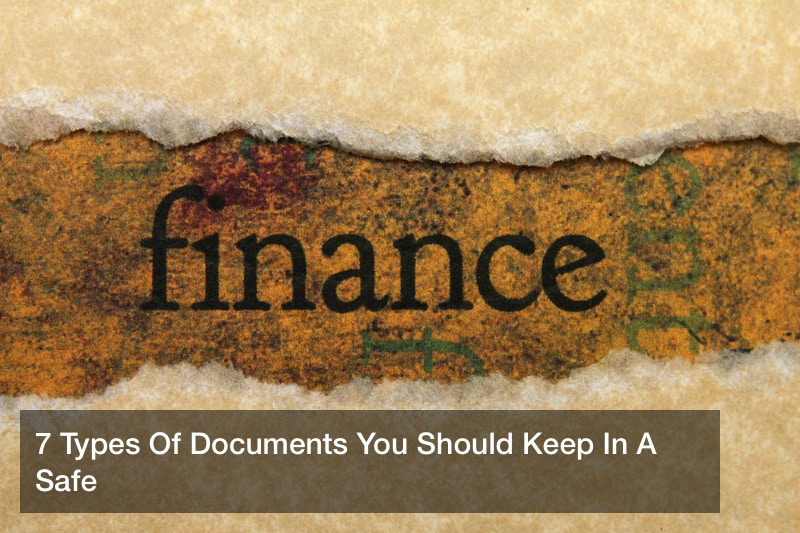Disclaimer: Concordia Research. This site provides general content for informational purposes only.
In this day and age, many of us have grown used to storing our documents digitally, and understandably so. It’s easy to trust the new technique more than the old one at first, or at least to be caught up in the convenience of digitally storing documents. But the fact newer is not only better, and there are a lot of issues that have everyone from business owners to the average person drawing up a will in need of hard copies. There is no way to guarantee that the Cloud, or whatever digital storage option you choose, will hold up. Not only can they experience system failures that will make it difficult for them to hold documents, or sometimes will erase them entirely; but they’re also at times user-unfriendly. For that matter, it’s always possible for hackers to break into your online storage, which could result in all of your information being accessed. Essentially, the Cloud is not foolproof and issues can occur without data backup.
This is why many still choose to keep hard copies of their important documents, either as primary copies or backups. While this can give you peace of mind, keeping hard copies of documents comes with its own set of responsibilities. You can certainly do it, and should, but you must do so safely. Make sure that you have a safe handy for particularly sensitive documents, and for that matter consider using large laminating sheets so that they are all laminated and therefore kept safe from damage. Some documents are so sensitive that you won’t even want a single fingerprint marring them. But other documents, you can be somewhat more free with. For example, you don’t need to worry about a blog post that an employee is editing for the company leaking if it’s frivolous and largely meant to attract attention to your website. But if that documentation contains personal employee information, you may have an issue on your hands. That’s why we’re looking at the types of documents that should be kept in backup or primary hard copies, ideally laminated, and within a safe.
1. Birth Certificates
Technically speaking, your birth certificate can be accessed online. It’s just not particularly easy to access online, and with good reason. Birth certificates are literally pieces of evidence that prove our existence to the world, and it’s difficult to do a lot in this world without them. Many more high-level jobs, especially those in the government, require your birth certificate before you officially sign on. It can be difficult to get a number of different types of loans, as well as a passport, without your birth certificate. This is why it can be quite a process to request a new copy, and why it’s advised that most Americans stick to keeping hard copies of documents that relate to birth certificates, and of course birth certificates themselves.
The reason why you need to in particular keep your birth certificate in a safe is that it is key to forging a new identity. Identity thieves are at times able to request copies of birth certificates of the dead in order to establish new identities. This way, they can take out credit cards and loans in the names of their victims, and can even commit crimes which may ultimately be attributed to the victims themselves. It’s not unheard of for identity thieves to steal birth certificates in order to begin the process of establishing a new identity. Certainly, it’s much easier in many ways than the alternative. This is why, though keeping hard copies of documents is very necessary in this case (you never know when you might need to provide a hard copy of your birth certificate) you need to keep these particular documents stored in a safe. You can never be too careful with regards to your identity.
2. Passports
In terms of passports, you have no choice but to keep a hard copy. Though there are ways to keep an additional copy of your passport digitally, in order to travel abroad you need to stick to keeping hard copies of documents. Your passport is essentially your key to the world, and it’s one of the best ways to verify your identity. You could potentially show your passport in place of your driver’s license if you’re asked to verify your age or identity; you could think of it as a global driver’s license. In the same sense that your birth certificate could be used to forge a new identity, so could your passport.
The issue with your passport, too, is that it could be used for potential criminal schemes aside from identity theft. People could use your passport as a template for false documents in order to travel between different countries. These are not the types of documents that you should be keeping in mudroom storage cabinets. You need to keep them within your safe, where nobody can steal them. People could potentially use your passports to make everything from new false passports to bank accounts in your name. Someone could go so far as to take out multifamily loans in your name without you even knowing.
3. Social Security Cards
Even if you don’t take keeping your birth certificate and passports safe seriously, you should do so with your social security card. This is perhaps one of the most key documents for creating a new identity. A social security card can be difficult to duplicate without first having a copy to base it on, and its number is unique to every single individual that receives a social security card.
However, social security cards are required, for tax purposes, to be hired at many basic companies. You may even have to give your social security card when being hired to be a server at a restaurant. This is why those keeping hard copies of documents usually include their social security cards among those documents. They simply aren’t the types of documents that you can easily keep digitally. If you lose your social security to theft or damage, the process to receive a replacement can be arduous. Therefore, you should keep your card in a safety deposit box at least, if not an outright safe.
4. Annual Tax Returns
If recent history has taught us anything, it’s that we need to include our annual tax returns when keeping hard copies of documents. Our tax returns how much we’re worth, essentially, and how much we’ve paid in taxes. This is something that public figures, like presidential candidates, traditionally disclose. Your tax returns may reveal that you are in a much higher tax bracket than you may necessarily want people to know, for a number of reasons. Furthermore, it’s difficult to escape questions when your tax returns are distributed during a legal battle that may involve assets and income, like a divorce.
There is nothing wrong with wanting to keep your annual tax returns private. Even if you don’t have anything to hide, which most of us don’t, the IRS may require your tax returns as part of an audit. Keep in mind that they only have three years to conduct an audit, which means that in this case, you only need to focus on keeping hard copies of documents for a limited time. You can reach into your safe and have your annual tax returns shredded after three years, but until then, keep them on file just in case.
5. Your Will
Wills can be somewhat awkward for us to think of, as nobody wants to consider dying unexpectedly. But even if you live to a ripe old age, it’s a good idea to have a will drawn up well ahead of time, simply to ensure that you don’t need to worry about your assets after you die. A will is essentially a legal document detailing your wishes in the case of your death. We make wills so that our relatives and loved ones will not have questions about what to do in that event, and to prevent any potential arguments. Some hesitate to make a will before they’re somewhat older because they don’t believe that there’s much of a point. However, a will can be amended after it’s initially drawn. You don’t need to worry about being attached to a decision that you made when you were younger for the rest of your life. But when keeping hard copies of documents, you must include your will among those documents.
A will is a sensitive document, and though it’s unlikely that anyone will tamper with it, you can never be too safe. You should have a hard copy of your will laminated, to make it more difficult to edit. And afterward, have that stored in a safe that nobody can access, save the executor of your will. This will ensure that your wishes are carried out in the event of your death.
6. End Of Life Protocols And Medical Directives
Not all of us are able to communicate our wishes as we lay dying, or even gravely ill. Quite often, hospital patients are left in a state of unconsciousness, unable to communicate their personal health plans. This is quite controversial, of course, as a lot of the cases in which medical directives are argued over involve comas, vegetative states, or even brain death. Even once someone is brain dead, for example, the next of kin must still agree to remove care so that the patient is removed from a ventilator and can die peacefully. It’s difficult for families to make such decisions, which is why it’s often advised that those who are aging, in particular, make legal directives regarding their medical wishes. This could involve directions as to whether or not they would wish to be removed from life-sustaining care if they were in a coma, and if so at what point. It’s incredibly important information.
Though some seniors choose to keep their documentation readily available, even pinned to their refrigerators; this is not always advised. It’s all too easy for documentation to be lost, and it’s a good idea for you to plan on keeping hard copies of documents involved with these emotional decisions. This way, nobody can dispute your wishes, whether they agree with them or not.
7. Divorce-Related Documents
Divorces can be difficult, and sometimes involve some degree of acrimonious conflict. It’s not unusual for them to last for years, due to both parties disagreeing on who should get what, and how custody should be arranged. Although your lawyer will ideally keep digital copies of all documentation related to your divorce, for peace of mind it’s advised that you plan on keeping hard copies of documents pertaining to your divorce as well. It’s impossible for you to know when you may need to produce your separation paperwork in court, and if you can do so readily, this will simply speed the process along.
With that being said, you also need to keep copies of everything that could help or harm you during your divorce. If you receive disability benefits and are worried about your ex-spouse having access to those benefits, you need to keep documents that prove that they shouldn’t. It’s not unusual for the consequences of divorce to continue well after the couple in question is legally divorced. The more easily you can defend your own rights with the help of a hard copy, the better.
Some would like to believe that the world has gone completely digital, but there is ample evidence to prove that it has not. It’s not at all unusual to see lawyers, even prosecutors, to bring up hard copies of documents up in court. In order for you to prove who you are, you often need hard copies of documents. In order to prove that certain events occurred, you often need hard copies of documents. Don’t underestimate the importance of hard copies, and for that matter don’t underestimate the importance of keeping those documents as secure as possible.






